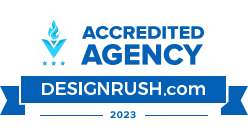ON-PAGE OPTIMIZATION
NAVIGATING THE SEO LANDSCAPE
A COMPREHENSIVE AUDIT AT LINGOWS MEDIA
In the digital realm, where visibility is akin to viability, an SEO audit emerges as a critical milestone. At Lingows Media, this process is not just a routine check-up; it's a deep dive into how effectively your website communicates with both search engines and users. Our audit is meticulously designed to uncover the strengths and pinpoint the areas needing improvement, ensuring your online presence is not only found but also favored.
01
KEYWORD RESEARCH AND OPTIMIZATION
Identify Target Keywords: To locate appropriate keywords with a large search volume and little competition, use tools like Ahrefs, SEMrush, or Google Keyword Planner.
Optimize Content: To increase relevance and visibility, naturally incorporate target keywords into headers, titles, meta descriptions, and the body of the website content.
02
HIGH-QUALITY CONTENT CREATION
Value and Relevance: Provide unique, engaging, and educational information that benefits the intended audience. Videos, infographics, case studies, and blog articles can all fall under this category.
Use of Keywords: Don't overuse keywords; instead, incorporate them organically into the text. Make sure the information appropriately addresses the questions posed by the intended audience.
03
META TAGS OPTIMIZATION
Title Tags: Compose exciting, concise title tags that contain the main term. The page content should be appropriately described in the title tag.
Meta Descriptions: Create compelling and evocative meta descriptions that include a call-to-action to entice visitors to visit the website.
04
URL STRUCTURE
SEO-friendly URLs: Make brief, informative URLs with the target keywords included. Steer clear of utilizing extraneous numbers or parameters.
05
IMAGE OPTIMIZATION
Alt Texts: When using alt texts for photos, make sure they are descriptive and include relevant keywords. This improves how well search engines comprehend and index the content.
Compression: To increase page loading speed without sacrificing quality, reduce the size of your image files.
06
INTERNAL LINKING
Strategic Use of Links: Create internal links between pages on the website to help users navigate the site more easily and find similar material.
Anchor Texts: To help search engines comprehend the context of linked pages, use informative anchor texts for internal links.
07
MOBILE OPTIMIZATION
Responsive Design: Make sure the website is mobile-friendly and offers the best possible viewing experience on a range of devices, such as tablets and smartphones.
Speed Optimization: Use resources such as Google's PageSpeed Insights to find and address components that cause the website to load slowly on mobile devices.
08
SPEED AND PERFORMANCE OPTIMIZATION
Reduce Loading Time: To speed up the loading of the website, minimize the size of the CSS and JavaScript files, compress the images, and employ caching.
Use a Content Delivery Network (CDN): Use a CDN to shorten the time it takes for pages to load by reducing the distance between visitors and the server.
09
STRUCTURED DATA MARKUP
Schema.org: Improve search engine visibility by using structured data markup (Schema) to assist search engines in better grasping the content and context of the pages.
ELEVATING SEO AND USER EXPERIENCE WITH ON-PAGE OPTIMIZATION AT LINGOWS MEDIA
Lingows Media welcomes you to consider cooperation to fully utilize the on-page SEO tactics that have been detailed. Together, let's improve the SEO performance of your website so that it provides an unmatched user experience in addition to ranking higher in search engine results. This dual emphasis draws in more visitors and successfully turns them into devoted patrons. Are you prepared to improve your web presence? Make the first move toward a website that is more successful, visible, and engaging by getting in touch with Lingows Media right now.
SIGN UP TO OUR NEWSLETTER!
Get the latest news on Local SEO, Reputation Management Tips, Creative Content Updates, and much more.
SIGN UP TO OUR NEWSLETTER!
We will get back to you as soon as possible.
Please try again later.
All Rights Reserved | Designed by Lingows Media




